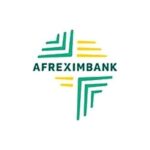Unlike in the past, Ponzi schemes are no longer crude, word-of-mouth scams. They’ve evolved into flashy websites, trendy cryptocurrency platforms, and social media-powered movements. Despite the polished packaging, what remains at the core is the promise of high returns that leaves investors empty-handed when the scheme collapses.
From the infamous MMM collapse in 2016 to the recent CBEX, which reportedly scammed over 600,000 Nigerians out of N1.3 trillion, Ponzi schemes continue to wreak havoc on unsuspecting victims. So, how do you protect yourself? The answer lies in knowing what to look for.
Unrealistic ROI
This is one of the biggest red flags. A platform that promises to double your investment in 30 days should immediately raise suspicion. No legal investment—be it in real estate, stocks, or treasury bills—can guarantee such profits in such a short time. Ponzi schemes count on your greed and excitement. Remember: the higher the promised returns, the higher the risk. If there’s little or no explanation about how these returns are generated, chances are it’s a scam.
No Clear Business Model
A legitimate business can explain in simple terms how it makes money. Ponzi schemes, on the other hand, rely on vague, confusing jargon. They will claim to use AI bots, forex trading, or secret crypto strategies but won’t provide any verifiable proof. If you can’t explain how the investment works in one or two sentences, that’s a warning sign.
- Advertisement -
In the case of CBEX, for example, the platform claimed it generated profit through AI trading but gave no transparent information about its operations. They even registered a company—ST Technologies International Limited—and obtained official-looking documents, which in fact, was not approved by the SEC.
Overemphasis on Recruitment
Genuine investment platforms don’t need you to bring in others to earn returns. But Ponzi schemes thrive on constant recruitment. If you’re promised bonuses or commissions for getting others to invest, you’re likely in a pyramid-style scheme. This model is unsustainable. Once recruitment slows down, the scheme runs out of money and collapses.
Lack of Regulatory Approval
Before investing in any platform, verify whether it is registered with the Securities and Exchange Commission (SEC) or the Central Bank of Nigeria (CBN). Unregistered platforms operate outside the law, leaving you without protection if things go wrong. Recent warnings from the SEC against platforms like PWAN MAX highlight how easily unlicensed companies can mislead the public.
Never assume a company is legitimate just because it has a slick website or some form of business registration. Regulatory approval is different from business registration, and only the former protects your money.
Hype, Testimonials, and Fear of Missing Out (FOMO)
Ponzi schemes often rely on hype, emotional pressure, and social proof. You’ll see glowing testimonials, WhatsApp broadcasts, and influencers showing off luxury lifestyles. Scammers use urgency to force people into making quick decisions. You’ll hear phrases like “don’t miss this chance” or “limited slots available.” A real investment will give you time to think and do your research.
- Advertisement -
Conclusion
Ponzi schemes don’t always wear the same mask, but they always leave behind the same trail of loss. Don’t fall for the promise of easy money. Build wealth the smart way—with patience, knowledge, and legitimate investments.
And before you invest, ensure you do the following:
Avoid pressure, Research first: Never invest based solely on hype or a friend’s recommendation. Do background checks. Search online, look for company reviews.
Check regulatory status: Verify any claims with official regulatory websites. Confirm that the company is licensed by the SEC or CBN before investing. Tools like the CAC website, SEC list of approved operators, and platforms like NgCheck can help.
Understand the business: If you don’t understand how it works, don’t put your money into it.
Speak out: Lastly, if you suspect a scam, report it to the EFCC, SEC, or NCC. You might help stop others from losing their money.








